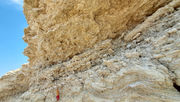History, Literature Will Judge the Mueller Report

In the days following the election of Donald J. Trump to the U.S. Presidency, it appears that top officials within the Department of Justice, the FBI, and the Intelligence Community were overcome by irrational fear and a sense that the sky was falling. The appointment of a Special Council was one response taken to limit the damage and allay those fears.
Robert Mueller began his investigation in to Russian interference and the Trump Campaign in 2017 with the understanding that a sitting President cannot be charged with a crime, a DOJ policy dating to 1883. He did not, however, believe his work would be constrained in any other way by the Executive Branch. Instead, Mueller interpreted his investigation of the Trump Campaign as "independent" and part of "a process other than the criminal justice system". According to Mueller, the DOJ's policy "explicitly permits the investigation of a sitting President because it is important to preserve evidence while memories are fresh and documents are available."
Mueller misinterpreted his role. A Special Council is a prosecutor. Prosecutors investigate charges and assemble evidence. They indict if the evidence is sufficient or drop the case if not. If the assembled evidence is found insufficient to charge a crime, a prosecutor is not to sidestep the legal system in favor of an extra-judicial path toward guilt or innocence. That process goes by another name: Impeachment.
The impeachment process is entirely relegated to the U.S. House of Representatives. The Constitution provides no role for members of the Executive Branch in impeachment proceedings.
By investigating a sitting President and documenting his non-criminal wrong-doings in The Mueller Report to the U.S. Attorney General, Mueller acted on behalf of Congress. There are good reasons for maintaining separation of powers between the three branches of our government. Impeachment is foremost among them.
It is difficult to say why Robert Mueller chose the investigative path he did. Perhaps he felt too confined by the duties of a Special Council and preferred instead to work as an Independent Council. The former reports to the Attorney General, the latter is no longer a job in our government. Independent Councils were appointed by and reported to Congress until 1999, when the act that established the office expired. Perhaps by acting on behalf of Congress, Mueller felt he was acting on behalf of the American People. Perhaps he felt entitled due to his accomplishments over a long career in government, or was bullied by his own staff, or is a doddering old man who dutifully served as the figurehead for an investigation done by others. Perhaps he feared being ostracized by his Washington DC social circle if he made no indictment on a brash, boorish President. Perhaps Mueller just felt Trump needed to go and did what he could to make that happen.
Whatever the reason, Volume II of The Mueller Report reflects a series of emotional decisions made by a storied lawman in the twilight of his career. I seem to recall that literature has addressed such behavior once or twice and found it distasteful (i.e., Robert Bolt's Roper, Victor Hugo's Valjean).
Mueller went political. In his May 29th press conference, Robert Mueller made the following statement, "If we had confidence the President did not commit a crime, we would have said that." His words stand U.S. law and the presumption of innocence on its head. His statement makes sense only if he were operating under the following theory.
Investigators, knowing early on that the President had not committed a crime, accepted that fact, but were unwilling to close the case. They shifted the focus of their investigation from legal matters to non-legal ones. The theory seems to have developed like this:
If no legal path leads to removal of the President, then what other paths remain open to us? We are permitted to investigate both legal and non-legal matters, so why confine ourselves to just the law? We can investigate whatever and however we see fit. If we pursue information, follow our leads, and report most of what we find, we are justified in continuing our work. If not a successful indictment, then a cloud of suspicion.
This non-legal (political) path stands outside the purview of the DOJ. History has judged such behavior harshly (i.e., Federalist #78).

Politics is fleeting. Stick to the classics. Bueller never goes out of style.























